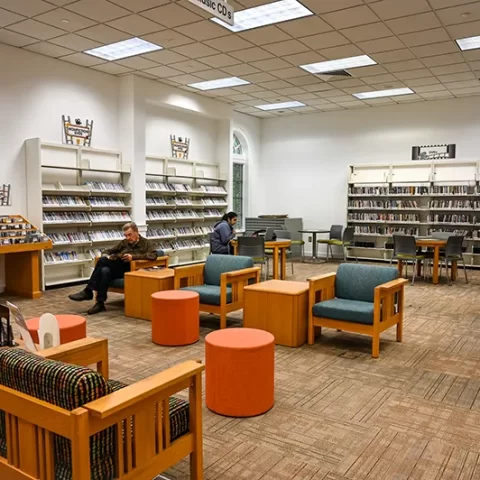By: Darrian Stacy

It’s a new year, and a new session of the Georgia State Legislature has begun. With such issues on the agenda as Campus Carry and Medicaid expansion, Georgia politicians will have their hands full this session. And, given whispers that the legislature is cutting its apparently strenuous 40-day session short this the election year, the public can be assured that a lot of “hard work” will get done at the Capitol. In addition to all of this activity, the new session also presents the opportunity to revisit an important issue: education in Georgia.
Last week in his State of the State Address, Gov. Nathan Deal touted Georgia’s “$930 million” increase in education funding over the last three years as indicative of a flourishing education system. The Governor also unveiled his budget proposal of, “the largest single year increase in K-12 funding in seven years,” with the addition of $547 million in education spending for the upcoming fiscal year. Amidst this wondrous news from the authority responsible for such fiscal issues, it would seem that education in the peach state is –well, just peachy.
While undoubtedly positive, the rhetoric of Georgia’s recent commitment to education unfortunately stands in stark contrast to reality. According to a report by the Georgia Budget & Policy Institute, schools in Georgia are suffering from inadequate funding due to a decrease in property tax revenue from declining property values (a major source of education budget revenue for local school districts). If this wasn’t problematic enough, sharp state budget cuts weighted for inflation (not increases) in education spending over the last 12 years have also contributed to crippling state education. Contextually speaking, the latter source of money is calculated by the complex Quality Basic Education (QBE) formula and is allotted by the state legislature to school districts. Georgia maintains the oldest state-chartered university in the country (Go Dawgs!), and it was the first state to offer residents free universal Pre-K education. It’s ironic then, that the legislators who have consistently withheld the capital needed for a healthy education system have forgotten the time old adage of “you reap what you sow”, which is reinforced by the state’s teachers who ask Georgia’s students to study and its coaches who urge Georgia’s athletes to train.
While it would be easy for legislators like gubernatorial candidate Sen. Jason Carter to scapegoat the more than 25-year-old QBE formula as the culprit behind the underfunded school districts, inadequate funding has occurred in spite of the formula, not because of it. In other words, for more than a decade Georgia lawmakers have routinely devoted less money to education spending than the QBE formula, which calculates the minimum amount of money schools need to give students a basic education, has recommended. How large is the disparity between what the formula recommends and what Georgia lawmakers have allotted for schools? For the 2013-2014 school year Georgia has provided more than $1 billion less than what the formula says schools need. Moreover, by its own standard the legislature has shortchanged education by $7.6 billion since 2003, effectively rendering this year’s sudden increase in education spending a mere drop in the bucket of where Georgia should be.
Of course, amid mixed reports of Georgia student achievement ranging from mediocre to marvelous, it is possible that legislators understand Georgia’s education needs better than the state’s educators or a complex formula specifically designed for the task of needs assessment can. In any case, the large declines in elective and extracurricular offerings, the dramatic increase in class sizes, and teacher furloughs, and the number of Georgia school districts slashing days in the school calendar are indication of the effects disinvestment is having on education.
Meanwhile, in recent years the federal government has played an increasingly large role in filling the funding gaps in Georgia’s malnourished education system, even though legislators aren’t making this clear. Much of the additional federal funding has been accompanied by new and very basic education standards known as the Common Core State Standards Initiative. Created by a bipartisan coalition of Governors, implemented prior to 2008, and endorsed by the White House, the standards are quickly becoming a politicized issue in light of the looming elections. In fact, last year Gov. Deal issued an executive order reaffirming that “no educational standards shall be imposed on Georgia by the federal government.” Indubitably, the cheating scandals, the loss of gifted programs, and the strain on educators allegedly caused by the No Child Left Behind program, the latest federal education policy, would make any lawmaker wary of federal education initiatives. While this concern may be valid, it is quite insincere for state politicians to publicly decry the federal initiative whilst cutting state contributions to education and attempting to fill the spending gap with more and more federal dollars.
However, all of these issues merely circle around the crux of the problem with Georgia’s education system. There can be no substantive discussion about funding sources, the federal government’s role in state education, or even student achievement until the elephant in the room has been addressed: Georgia’s schools aren’t being provided with enough money from Georgia itself, and they haven’t been for years. Education spending deficits have occurred under both democratic and republican legislatures and governors, and budget votes are coming from both republicans and democrats. Thus, despite what you may hear from candidates this election year, neither party can honestly brandish the title of “education’s biggest supporter.” In fact, this year’s budget (the one that shortchanged education funding by $1 billion dollars) passed with near unanimity in both legislative chambers.
In 2011, days after being inaugurated as governor, Gov. Deal proudly proclaimed, “the minds of our children are our greatest resource.” If this is truly Deal’s opinion and education is in fact a top priority for the state, it is past time for Georgia to invest in its “greatest resource.” As long as Georgia continues to provide less than the minimum amount of money its schools need to be successful, such a commitment is an intentional fabrication. If Georgians genuinely want to affirm the importance of education and eliminate the culture of chronically underfunding the education system, 2014 is the time to establish the precedent and force politicians to commit to education for more than an election year.


